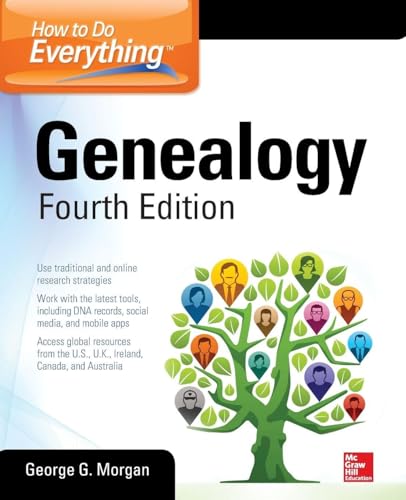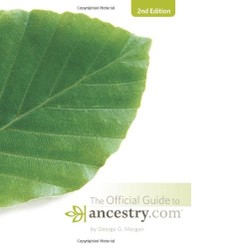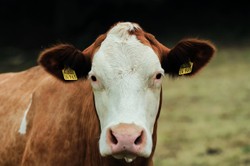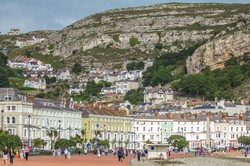When I see that commercial of the person who thought he was of German descent, but found it otherwise, I can certainly relate to this. I was told that I was one fourth of German descent, three sixteenths of English descent, one sixteenth French directly from France, one fourth Irish and one fourth Cajun French. Some of this was right, but some was so far off it should never have been claimed.
The facts are that my maternal grandmother has roots in Germany. But I now know these roots come specifically from Bavaria. Bayern is one location that comes up. My maternal grandfather has some origins in Sussex, England, where his father came from and later returned to. His mother was in an orphanage at a young age, and I cannot get any information from the past her except for her last name and the fact her father was from France. This scant information comes from her marriage license, so she herself did not know her parents first names.
On my father’s side things were completely in error. Searching the name Smith was surprisingly easy, since the line go back to some rather famous people. Originally, it was Smythe, but changed hundreds of years ago. The Smith.Smythe line is well documented, and some of those in it had titles. In fact, the last man to be found as a Smythe was High Sheriff John Smythe, and his son was William Smith, a godfather of William Shakespeare. The Smythe line ends with Lord Michael of Carrington Smythe. The lords and ladies from my ancestry intermarried with others with titles, and I am able to follow branches back to Emperor Louis I of the Western Holy Roman Empire, then to some other impressive names. Many of these ancestors arrived in England from Bavaria and other locations, in particular the spouses of the lords, whose lines can also be traced. Indeed, the line is documented to Charles Martel, Charlemagne and Clovis. If a line of such significance is entered the work of going back g unless gets easier, but not equally so for the branches that come into it via spouses unless they are also of significance.
Finally, my father’s Cajun heritage is not so simple. I can trace ancestors to Nova Scotia, the origin of the Cajuns, and others to Quebec. Others came directly from France, one as the personal physician of Bienville. Then came Spanish names, which were traced to boats that brought people to Louisiana from the Canary Islands off North Africa who are genetically Berbers, which is what North Africans of Egypt, Morocco, and other Mediterranean countries are.











 Multivariable Calculus: Gradient, Divergence, and Curlon 12/19/2025
Multivariable Calculus: Gradient, Divergence, and Curlon 12/19/2025
 UAPs, Formerly UFOs, If They Are Real How Can We Explain Their Arrival to Earth?on 12/18/2025
UAPs, Formerly UFOs, If They Are Real How Can We Explain Their Arrival to Earth?on 12/18/2025
 Polar Coordinate Systemon 12/16/2025
Polar Coordinate Systemon 12/16/2025
 Aurora Can Disrupt Electrical Devices And Even the Grid?on 12/15/2025
Aurora Can Disrupt Electrical Devices And Even the Grid?on 12/15/2025



Comments
My youngest brother and I have them and he has had minor surgery on one hand. Mine are more severe . I have had 5 operations and several steroid injections. My brother's youngest daughter has them but I have not asked other relatives.
We have a thick tendon below the fingers which thickens even more as we get older and the finger pulley system catches on it. This is found mainly in people who are of Scandinavian descent according to the hospital doctors.
I felt an affinity with Scandinavia long before Andrew worked in Norway.
By the way, what is the characteristic of Scandinavian hands?
Obviously the Scandinavians have integrated over 1000 years :) We don't see them walking their kids to school. But the blood line especially the Y chromosome remains throughout.
I have it on medical authority that I have Scandinavian hands. My brother has it and his daughter has it. This has come down from a 1000 years ago. They may have integrated but their genetic influence is still there and DNA labs are so skilled and specialised they can distinguish .
You say you have an affinity with Scandinavia but you also said that recently that your oldest son had worked in Scandinavia.
I do believe we are drawn back to our roots subconsciously.
"The Slave Trade" by Hugh Thomas reveals serious slaving by the Portuguese and Spanish in the Canary Islands, but does not speak of any slaves being sent to the New World, as they seem to have gone to Europe.
Thomas Craughwell's "The Wisdom of Popes" tells of how in 1435 Pope Eugenius IV told the bishop of the Canary Isles to denounce the enslavement of the Canary's native population and gave them fifteen days to free their slaves or face excommunication. Sadly the spiritual penalties did not have much effect.
I as a historian had no knowledge of a Canary islands contingent in the New World. fascinating TY. Were there any slave trade connections do you know re Canaries and the New World ?
Thank you, Henry! I find all that about the Canary Islands men and their families very interesting! (I have friends in the Canary Islands.)
First to Mira, the Canary Islands are a part of Spain, and they recruited 700 soldiers to help as coast watchers and garrison Louisiana against attack. The me recruited were chosen if they also could bring a family to help build up the settlement in the area. Hence 2200 people were sent on eight boats. Seven boats made it, the other encountered a British fleet and turnrd to Cuba where many stayed.
Frank and Veronica,I am from only one branch of three Smiths. The name if Smythe about five hundred years ago. Yes, there are Danes well back, and some other Scandinavians, at least in the known branches. While I can get to the 400s I cannot do so on every branch, just a very narrow line. My real point is that when we search we can be quite surprised with the results. Strangely, the Sussex branch of Tizzards intermarried with Collins and Sutters is what I thought to be my only English origins until I searched. There I can get only to the 1400s.
I did not add everything in the articles such as the Danes because of length.
As I said, the links between Eastern England and Scandinavia were very strong. Eastern English migration into Lancashire in 625 and subsequently brought much this genetic line into the Lancashire region, and your Limerick ancestry accounts for much Scandinavian, but the Scandinavians absorbed into the Irish and British and are now not a distinct group anywhere in the British Isles, except maybe Shetland. But it is interesting that I feel quite a sense of affinity with Scandinavia.
I am a mile north of the Mersey.
What is interesting is to see where your family surnames come from. My English ones come from an area ranging from Shropshire in the West Midlands[Poole] through Cheshire [Bickerton] and Lancashire [Beswick, Shorrocks]. Then there are the Irish [Manning, Burke, Connelly etc] and a Scots name [Stevenson.]
Frank, Cheadle Hulme is in Cheshire . MY address is Cheadle Hulme Cheshire and it is south of the River Mersey which also makes it on the Cheshire plain. I believe you are a few miles North of the Mersey which puts you on the Lancashire side. So you and I have done a reversal you were born in Cheshire and live in Lancs. I was born in Lancs and live in Cheshire.
I am actually genetically more Scandinavian than English . Irish then Scandinavian then English. It wasn't just Norse Viking ( pirates ) , there was also much trade between Scandinavia and the rest of Europe.
Henry, if it has an e on the end Smythe may well be Irish originally . Names such as Clarke , Cooke are Irish spellings with an additional e .
If you want something looking up in Cheshire Henry I will try to help you if possible as I travel round Cheshire visiting quite a lot.
The name Smythe is still known in Ireland, the North especially.
Veronica, all northern English lineages have a substantial Scandinavian streak, as the Angles, who settled here, were accounted south Scandinavians, as they came from Denmark. We also got Danish during the Viking period, for large numbers of Danes settled in the area known as Danelaw. But there were few Danes in Lancashire, for the Danes entered from the East, but what we got was much Norse Irish, from the Dublin Pale, and some settled in South Lancashire, where we both live. Oppenheimer, writing in the Origins of the British,claims that East Britain was ethnically very close to Denmark, even before the Angles arrived, and that adds to the Scandinavian connection.
Of course, you also get much Scandinavian from having ancestors from Limerick, which was a Viking settlement. That South Western Irish connection also explains your Spanish DNA, as many shipwrecked Armada sailors were given refuge there, and as many of those were Portugese, themselves conquered by Spain, many were happy to settle in Ireland, hence your ancestors.
Black Spaniel, was there one Smythe family that separated to three places, or did the same name originate thrice? I find this with my surname, Beswick. There are two quite distinct Beswick families. the Lancashire and the Yorkshire. I am Lancashire.